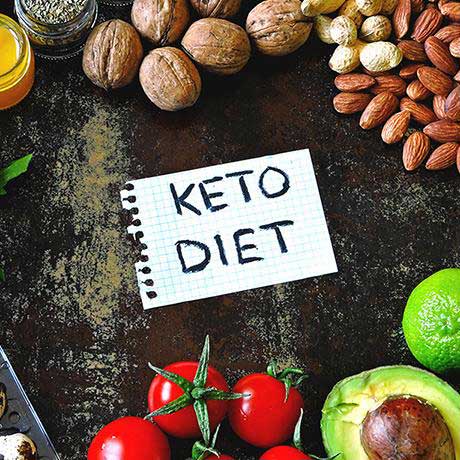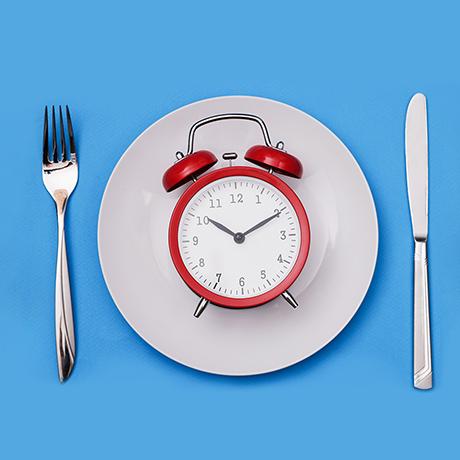- Private & confidential service
- Genuine medication
- All-inclusive service - No hidden fees
- Next day delivery
- Weight Loss
- What should I eat to lose weight?
- How many calories should I eat a day?
How many calories should I eat a day?
Knowing how many calories you should be eating can be difficult - especially because it’s a different number for everyone.
Your daily calorie intake depends on several factors, including your height, weight, gender, age, and level of activity.
With our calorie calculator, you can find out exactly how much energy you need per day. You can then use this information to calculate a suitable calorie deficit that is sustainable for a weight loss journey.
What is the recommended amount of calories?
The NHS guidelines recommend the following number of calories to be consumed daily in order to maintain your weight:
- 2000 calories for women
- 2500 calories for men
Whilst this advice is suitable for a majority of the population, these numbers will not apply to everyone.
Depending on your height, weight, age, and physical activity, these numbers could be either too high or too low.
For example, a 2000 kcal daily intake applies to the average-sized woman. If you are shorter than average you will likely need less than 2000 kcals, and if you are taller you will likely need 2000+.
You can find out how many calories you specifically need using a mathematical formula outlined below.
How many calories is right for me?
To find out how many calories you need daily, you can calculate your BMR (Basal Metabolic Rate). This is essentially how much energy you need to stay alive.
The formula looks like this:
Women: 9.247W + 3.098H - 4.330A + 447.593
Men: 13.397W + 4.799H - 5.677A + 88.362
- W = Weight (kg)F
- H = Height (cm)
- A = Age
For example, if you are a 45-year-old woman who is 165cm tall and weighs 78kg, your calculation would look like this:
(9.274 x 78) + (3.098 x 165) - (4.330 x 45) + 447.593 =
721.266 + 511.17 - 194.85 + 447.593 =
BMR = 1485.179
This number equates to the number of calories you burn just by living (e.g. breathing and keeping your heart beating).
To work out your maintenance calories (how many calories you need a day to stay the same weight) you need to multiply your answer based on how active you are.
This number is referred to as your TDEE (total daily energy expenditure).
- little to no exercise (sedentary) = x1.2
- exercise 1-3 times a week = x1.375
- exercise 3-5 times a week = x1.55
- hard exercise 6-7 times a week = x1.725
- hard exercise 6-7 times weekly + active job = x1.9
For example, if you calculate your BMR as 1480 and you exercise 1-3 times a week, your TDEE will be 2035.
This is because: 1480x1.375=2035
What factors affect your BMR?
Your BMR is influenced by many different factors. The following table outlines how each factor either increases or decreases the number of calories you burn:
| Factor | Reason |
|---|---|
| Height | Because taller people have a larger surface area, more heat is released from the body and more calories are burned to maintain body temperature. |
| Weight | Heavier people require more energy to move their bodies, causing them to burn more calories at a higher weight. |
| Age | As you get older, your metabolism slows down so you burn fewer calories. This is partly due to loss of muscle mass (and menopause in women). |
| Gender | Men generally burn more calories than women due to their larger size (on average) and increased amount of muscle mass. |
| Muscle mass | The more muscle mass you have, the more calories you burn. By building muscle at the gym you will increase your metabolism (and therefore your BMR). |
| Pregnancy | Pregnant women will burn more calories due to an increase in body mass and by growing their baby, which increases their BMR. |
| Weather/Climate | Very hot or very cold climates can cause you to burn more calories. This is because additional energy is needed to maintain your body temperature. |
How many calories should I eat to lose weight?
If you have been struggling to lose weight, it might be because you are not actually in a calorie deficit.
According to the NHS recommended guidelines, to lose weight at a sustainable rate:
- women should aim to eat 1400 calories per day
- men should aim to eat 1900 calories per day
However, if you are smaller than average and lead a sedentary lifestyle, these numbers might be closer to your maintenance calories. As a result of this you may feel frustrated, thinking you are in a deficit but not losing weight.
To find out how many calories you should be eating to lose weight, calculate your daily maintenance calories, and subtract around 500.
Alternatively, you can detract 20% from your TDEE. For example, if you require 3300 calories per day, subtract 660 calories (because 20% of 3300 is 660).
If you up your daily exercise, you can aim to subtract around 200-300 calories instead. With this calorie deficit, you would lose roughly 0.5 kg (1lb) of body weight per week.
How many calories can I cut to lose 1kg per week?
If you were to lose 1kg per week, you would have to be in a weekly deficit of 7,700 calories (more than 1000 calories a day).
Whilst you might be able to sustain this for a short period of time, any weight you do lose will likely be gained back as a result of overly restricting your caloric intake.

Being in too low of a deficit will leave you with low energy levels and increased irritability. It might even cause you to give up on your weight loss journey entirely.
Instead of trying to lose weight as fast as possible, stay within a sensible calorie deficit (no more than 500-600 per day). You are much more likely to reach your goals slowly and sustainably - it just requires a little more patience.
How many calories should I eat for weight gain?
If you are underweight or trying to gain muscle mass, you must eat in a calorie surplus in order to increase your weight.
To gain 0.5kg per week, aim to eat an extra 600 calories per day.
So, if your BMR is 2250 calories you should start aiming for 2850 calories daily.
To meet the necessary calorie intake, try increasing your portion sizes and drinking smoothies (packed with healthy fats and carbs) twice a day.
Avoid overly processed foods even if they are very calorie-dense. It is possible to gain weight whilst keeping an overall balanced diet.
Calorie calculator - find out your maintenance calories:
You can use our calorie calculator to work out your daily calorie intake. Simply insert your height, weight, age, gender, and activity level to calculate your TDEE.
The result will be how many calories you specifically need to eat daily in order to maintain your weight.
How much should I eat once I’ve reached my weight loss goal?
It is important to remember that once you’ve lost weight, you should no longer remain in a calorie deficit.
Weigh yourself and calculate your new TDEE. It may be slightly lower since the beginning of your weight loss journey.
Remember this number and aim to eat at maintenance to remain your current weight. You don’t have to continue tracking calories, but be wary of over-eating to avoid gaining weight back.
What are some tips for reducing my calories?
The following tips may be useful if you are trying to reduce your calories for weight loss:
- Drink at least 1.5L of water per day and drink before meals (to help you feel fuller)
- Eat within a 12-hour window, or try intermittent fasting
- Eat slowly whilst focusing on your food (don’t eat mindlessly in front of the TV)
- Fill up half your plate with veggies at meal times

- Eat enough at meal times to feel full (if you’re still hungry after meals you may end up snacking more and consuming more calories)
- Avoid drinking too many calories (alcohol is especially calorie-dense and increases your appetite when drunk in excess)
- Track your calories in a food diary (not forgetting oils you’ve cooked with, condiments, and toppings)
- Avoid sugary foods (no matter how low in calories) and limit your fruit intake to 2 portions per day, preferably choosing berries and apples
- Eat from a smaller plate than usual
- Go for a 10-15 minute walk after every meal
Further reading

What should I eat to lose weight? Does the DASH diet work for weight loss?
Reviewed by Dr. Plauto Filho
What should I eat to lose weight? 12 nutritionist tips to lose weight
Reviewed by Dr. Plauto Filho
What should I eat to lose weight? Keto: does it really work for weight loss?
Reviewed by Dr. Caroline Fontana
What should I eat to lose weight? What is intermittent fasting and does it work for weight ...
Reviewed by Dr. Caroline Fontanamedical form
medication
prescription
from pharmacy



